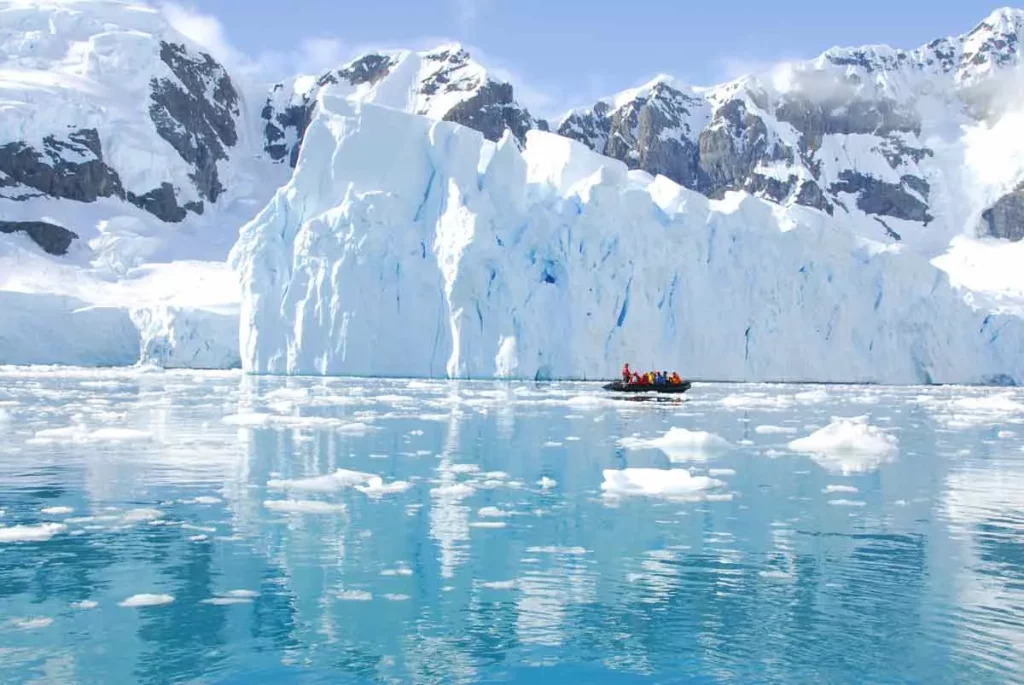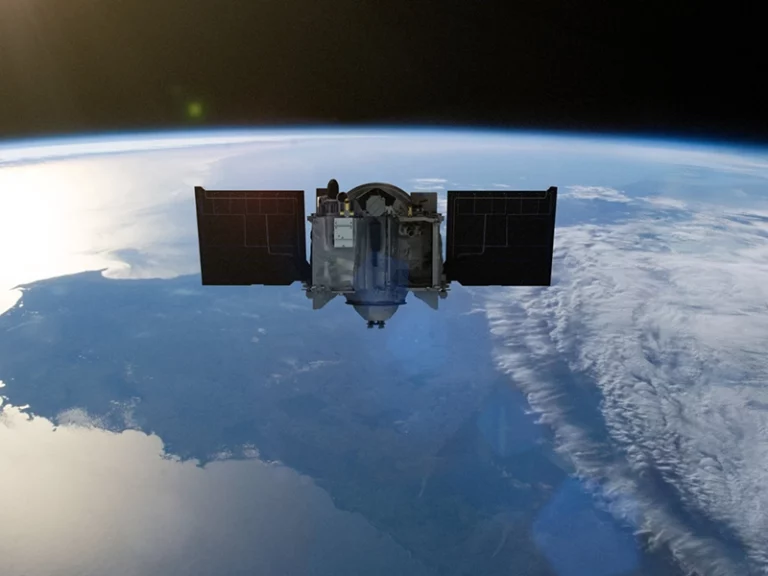Scientists have made a groundbreaking discovery that sheds light on the cause of giant underwater landslides in Antarctica. These massive landslides have the potential to generate tsunami waves that can stretch across the Southern Ocean.
An international team of researchers has unearthed layers of weak, fossilized sediments beneath the seafloor. Which were formed during a time when Antarctica experienced warmer temperatures and higher sea levels.
With the ongoing climate change, including rising sea levels and shrinking ice sheets, there is a concern that similar incidents could occur in the future.
While posing a tsunami risk to regions like South America, New Zealand, and South East Asia.
Unveiling Underwater Landslides and Ancient Climate Insights in the Ross Sea
The underwater landslides in the eastern Ross Sea were initially discovered by a team of scientists during the Italian ODYSSEA expedition in 2017.
Subsequently, the area was revisited in 2018 as part of the International Ocean Discovery Program (IODP) Expedition 374 where sediment cores were collected from hundreds of meters beneath the seafloor.
Through meticulous analysis of these samples, researchers found microscopic fossils. They offered insights into the climate of the region millions of years ago.
Showing how it contributed to the formation of weak sediment layers beneath the Ross Sea.
Submarine Landslides: Implications for Tsunamis and Climate Change
Dr. Jenny Gales, a Lecturer in Hydrography and Ocean Exploration at the University of Plymouth, and part of IODP Expedition 374 emphasized the importance of studying submarine landslides as a major geohazard.
These landslides have the potential to trigger tsunamis, resulting in significant loss of life and infrastructure damage, including subsea cables.
The researchers’ findings underscore the urgent need to enhance our understanding of how global climate changes. And how this might impact the stability of these regions and the potential for future tsunamis.
Surprising Connections: Climate Change, Submarine Landslides, and Tsunami Threats
Professor Rob McKay, Director of the Antarctic Research Centre at Victoria University of Wellington, expressed surprise at the revelation that the past climate changes they were studying were directly linked to submarine landslide events of such magnitude.
The discovery highlights the need for further investigation into this potential hazard. The study’s implications are particularly relevant as the planet experiences extensive climate change. Including warmer waters, rising sea levels, and diminishing ice sheets.
The possibility of future seismic events off the coast of Antarctica generating tsunami waves that reach the shores of South America, New Zealand, and South East Asia raises concerns that demand attention.
Unprecedented Discoveries through Scientific Ocean Drilling
The sediment cores collected during the IODP project have proven instrumental in understanding the planet’s history. Including ocean currents, climate change, marine life, and mineral deposits.
The project’s focus on studying sediments and rocks beneath the seafloor has paved the way for significant discoveries like this one.
Laura De Santis, a researcher at the National Institute of Oceanography and Applied Geophysics in Italy, emphasized the vital role of scientific ocean drilling in uncovering valuable insights about Earth’s past and identifying regions susceptible to natural hazards.
Considerations for Infrastructure and Communication
Dr. Amelia Shevenell, Associate Professor of Geological Oceanography at the University of South Florida, College of Marine Science, emphasized the importance of this study for infrastructure decisions and communication in Antarctica.
Large landslides along the Antarctic margin have the potential to trigger tsunamis, which could lead to significant loss of life, even far from their origin.
Nations are exploring the possibility of installing submarine cables to improve communication from Antarctic research bases. Conducting marine geological and geophysical feasibility studies early in the development process becomes essential.
Understanding the geological risks associated with these regions can ensure the success and safety of such projects.
Conclusion
The recent discovery of the cause behind giant underwater landslides in Antarctica provides valuable insights. Mainly into the potential tsunami threats posed by such events.
The weak sediment layers formed during a period of warmer temperatures and higher sea levels millions of years ago. The ongoing climate change raises concerns about similar incidents occurring in the future.
This research underlines the urgent need to enhance our understanding of the stability of these regions and the potential risks they pose.
By investing in scientific ocean drilling and conducting comprehensive feasibility studies, we can better prepare for and mitigate the impact of these hazards on human life and critical infrastructure.
Reference:
Past climate change to blame for Antarctica’s giant underwater landslides. Link to the source





